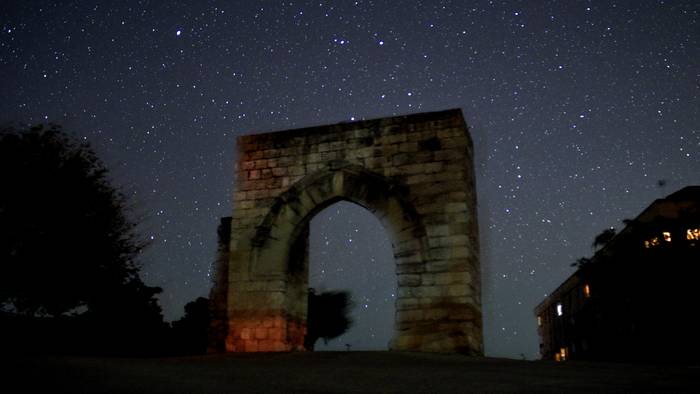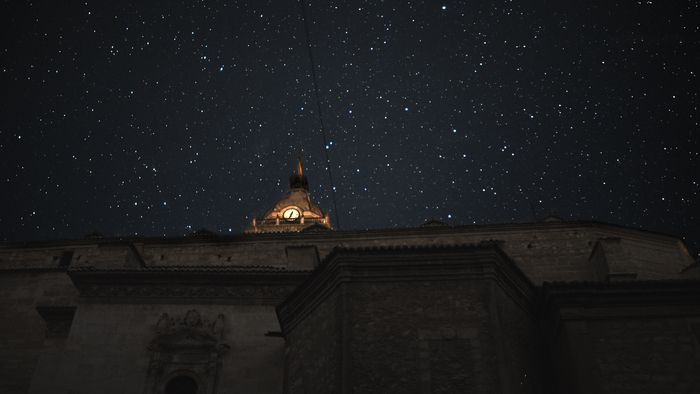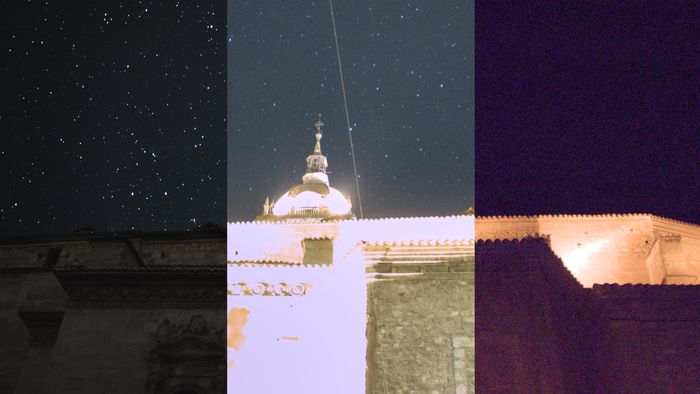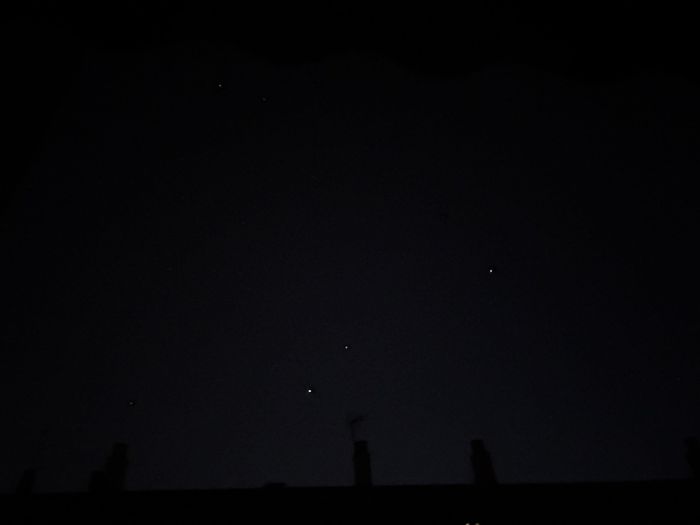
How the Great Iberian Peninsula Blackout briefly gave me back the night sky
On April 28th, 2025, the Iberian Peninsula power grid malfunctioned, causing a nation-wide blackout on Spain, Andorra and Portugal. Some towns in the Spain-France border also got affected.
For most of these areas, power went back on within the following 6 to 10 hours. But the region where I live was among the ones that took the longest for lights to return.
This gave me an opportunity that I sort of hoped would happen, but never thought there would ever be a realistic chance of happening within my lifetime: Taking photos of the night sky while in the downtown of a city. This was an occasion that was so rare that I had to take the chances at whatever the cost to not miss out.

You can check the cathedral and archway photos I took in their full resolution, too.
Honestly, it’s a bit of a miracle that I managed to take these two pictures. Not only the lights were off long enough for it to stay incredibly dark at night, but the moon was just past its new moon phase, so it was pretty much below the horizon for the entirety of the night. This effectively made what I’d argue has been the darkest skies this city has seen in the last 250 years.
Even so, I was playing safe here: I didn’t bother to set up my star tracker and I took pretty basic short exposures. I had no idea when power would come back after all. Because of that, I couldn’t correct the artifacts you can see in the full resolution version of these photos.
What amazes me the most about these pictures is how unsaturated they are, especially the starry skies.
I think it could be partly because of the tools I’ve used to process the source images—unshackled from Adobe’s control, now I had to make my way without Photoshop and Lightroom—but another possibility could be that this is because of the sky lacking so much light that it’s not enough to make the atmosphere scatter the light, making it blueish.

Light pollution is a thing that exists in our modern world and has become particularly prominent since the 1990s. My parents (and also a bypassing gentleman who approached me taking these photos; had a nice chat with him about how astronomy was back then vs now) still remember that in their youth, they were able to spy the Milky Way with the naked eye. But with the widespread of artificial lighting —particularly LED— this is no longer the case. Last year I made a post talking about light pollution and some of the problems caused by it.
But without power, all artificial light stopped working. However, the outage began at midday. It was announced that power would gradually return while the sun would be still up. Luckily for me, the north and south were the first to get power, while I, who was at the center, was in one of the areas that would be last. So the chance was there.

If you’re keen about details, you can see the full sized version here.
What I also find quite shocking is how little people seemed to care about this once in a lifetime event that added some positive light onto the disaster. Some apparently did take the chance that it got dark and focused on taking pictures for their social feed, but I don’t think there was anybody who was staying out for the evening were focused on the stars, let alone take pictures of them.
But it’s totally understandable. Watching the sky suddenly have a bunch more stars than usual is probably something way less important than worrying about your food in the freezer and refrigerator going bad. Although it probably would have been way more impressive and attention-catching if the Milky Way were to be visible —at this time of the year it’s a bit difficult to spot it at the time of the blackout. And even if it were to be in its full splendor, many people would simply think it wouldn’t be worthwhile watching if the city lights would be back on before sunset anyway.

Still, the people who take the chance to make cool pics of themselves on Instagram sadden me in a way, because it’s definitely showing that looking at the stars, one of the most ancestral cultural aspects humanity has had since the dawn of time, is rapidly disappearing. Apparently, having higher numbers on social media than everyone else so you can feel socially accepted is more important nowadays. Sometimes I wonder, if this is the way cultures are naturally meant to evolve, making preserving such cultural heritages an ultimately futile effort.
Of course, I’m not saying that we should all turn our power off just like how it happened on that day. My point is that light can be used in a more responsible way, and that in order to improve our quality of life just a bit more and to preserve something so ubiquitous across civilizations and generations, showcasing humanity’s evolution in science and philosophy, we should try to start implementing those.


